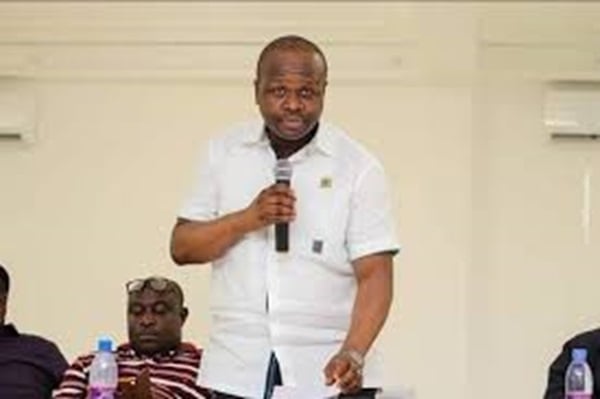Dr. Edward Omane Boamah, the Director of Elections and IT for the National Democratic Congress (NDC), has leveled serious accusations against the New Patriotic Party (NPP), alleging a heavy reliance on rigging tactics during the December 7, 2024, general elections. In a public statement posted on Facebook, Dr. Boamah asserted that the NPP prioritized manipulating the electoral process over genuinely engaging with the electorate and earning their votes. This accusation paints a picture of a party more focused on subverting the democratic process than on presenting a compelling platform and earning the trust of the Ghanaian people. The NPP, according to Dr. Boamah, invested heavily in what he termed a “rigging machinery” as their primary strategy for securing victory, rather than focusing on policy discussions and connecting with voters on a substantive level. This claim, if substantiated, would represent a significant breach of democratic principles and raise serious questions about the integrity of the electoral process.
Dr. Boamah’s accusations go beyond mere conjecture. He pointed to the surprised reaction of NPP General Secretary Justin Kodua Frimpong following the election results as further evidence of their reliance on manipulation. Kodua Frimpong’s reported statement, expressing shock at the outcome despite providing substantial support to NPP parliamentary candidates, suggests an expectation of victory based on factors other than legitimate electoral support. This apparent disconnect between perceived support and actual results lends credence to Dr. Boamah’s allegations and raises questions about the internal assessments and strategies employed by the NPP during the election campaign. The implication is that the NPP’s confidence stemmed not from genuine grassroots support but from a belief in the effectiveness of their alleged rigging mechanisms.
The NDC, according to Dr. Boamah, actively worked to counteract the NPP’s alleged attempts to manipulate the election. He claimed that the NDC successfully “neutralized” the Electoral Commission “to an extent,” and disrupted some of the NPP’s planned rigging activities on election day. While he refrained from divulging specific details about these counter-strategies, the implication is that the NDC engaged in a concerted effort to protect the integrity of the electoral process and prevent the NPP from unfairly influencing the outcome. This assertion highlights the NDC’s perceived role as a defender of democratic principles against the NPP’s alleged attempts at manipulation.
The 2024 Ghanaian general elections resulted in a significant political shift, with the NDC regaining power and John Dramani Mahama returning to the presidency. This outcome, following the NPP’s prior tenure, underscores the dynamic nature of Ghanaian politics and the potential consequences of alleged electoral manipulation. The NDC’s victory, in the context of Dr. Boamah’s accusations, could be interpreted as a testament to their efforts to counter the alleged rigging attempts and a reflection of the electorate’s desire for a fair and transparent electoral process. The results also suggest that the NPP’s alleged reliance on manipulation, if true, ultimately proved ineffective.
Dr. Boamah’s allegations, while serious, remain unverified and require thorough investigation. The NPP has yet to officially respond to these accusations, leaving a significant gap in the narrative. A comprehensive investigation into these claims is crucial to determine their veracity and to ensure the integrity of future elections in Ghana. Such an investigation should examine the evidence presented by Dr. Boamah, gather testimonies from relevant parties, and analyze electoral data to determine whether any irregularities occurred. The outcome of such an investigation would be crucial for maintaining public trust in the electoral process and holding those responsible for any wrongdoing accountable.
The accusations made by Dr. Boamah raise fundamental questions about the health of Ghana’s democracy and the importance of free and fair elections. If the allegations are proven true, they would represent a serious threat to the democratic process and underscore the need for robust safeguards against electoral manipulation. Furthermore, these accusations highlight the importance of transparency and accountability within political parties and the crucial role of a neutral and effective Electoral Commission in ensuring the integrity of elections. The future of Ghanaian democracy depends on addressing these allegations and strengthening mechanisms to prevent future attempts at electoral manipulation. A commitment to free and fair elections is essential for maintaining public trust and ensuring the legitimacy of the government.














